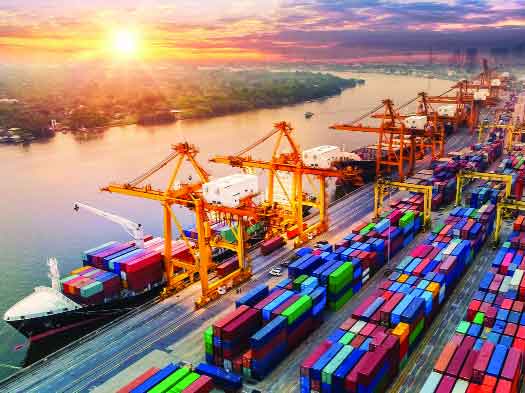India needs to overhaul its domestic regulations
India and Australia signed on the Economic Cooperation and Trade Agreement (ECTA) last week, as a precursor to a wider comprehensive economic partnership agreement (CEPA) later. This arrangement brings two large market economies in the Indian ocean geography closer by bringing more access for each other’s goods, services and human capital. The stated objective of ECTA is to enhance the economic, commercial ties between these two countries to reach $50billion annually in next couple of years. This marks a new chapter in India’s outlook towards creation of wealth for citizens. India has distanced from global trading agreements and multi-country regional trading blocs almost since independence. The reasons vary from domestic pressures from powerful lobbies, an exceptionally poor record of binding onerous labyrinth of regulations and compliances and of course geopolitics. It is refreshing to see that the current government in the seventh year of its rule has begun to show a determined intent of playing in the competitive league of trading nations. India signed a CEPA with UAE a few days before the Australian ECTA was solemnised. The former gives Indian goods and services an exciting market access to the middle eastern state that can later be expanded into a similar agreement with the Gulf cooperation council (GCC). Some analysts have pointed that to begin with the CEPA will provide Indian goods an access for a market worth $10 billion, which has so far been underutilised. The agreement provides a glimpse in the coming-of-age comprehension for trade-agreement-related policy-making inIndia.Thereis a chapter dedicated to digital trade which has been touched upon for the first time in the text leading to India-UAE CEPA. Digital trade policies are a new emerging field of negotiations which goes beyond the common customs and tariffsapproaches to trade between two partner countries or blocks. In many ways it covers an entire gamut of tangible and intangible barriers to trade that is shifting to a digitalmode. It may be premature to comment which way the multilateral WTO dialogue on digital trade policies is headed. However, India by agreeing to a chapter on this field in its agreement with UAE has opened up potential for similar approach in future deals. Australia with whom India has signed ECTA may be next in line, and it would be good to see if India follows thesame approach as UAE. The other developed countries in the pipeline with whom India has stated its desire to quickly negotiate some kind of an economic and commercial partnership agreement include the UK,Canada and EU. All of these are powerful regional blocs and home to some of the top digital enterprises.They have digital governing principles in place unlike India which is is yet to have a comprehensive federal architecture for the digital aspects. This could be a significant disadvantage for India as it would mean future agreements on digital trade policies could take a back seat. This calls for India to start overhauling its entire legal framework on digital policies and laws. It requires a whole of government approach along with a significant amount of stakeholder consultation. The government could also look at creating a relativelysimple deliverable from bureaucrats drawn from across ministries to decide on security, privacy, economic and commercial viability, transparencypractices and overall humanitarian aspects of digital policies. It may be too late if the horses of global trade bolt from the stables before a comprehensiveframework for domestic regulations evolve.
(The writer is a policy analyst. The views expressed are personal.)


























